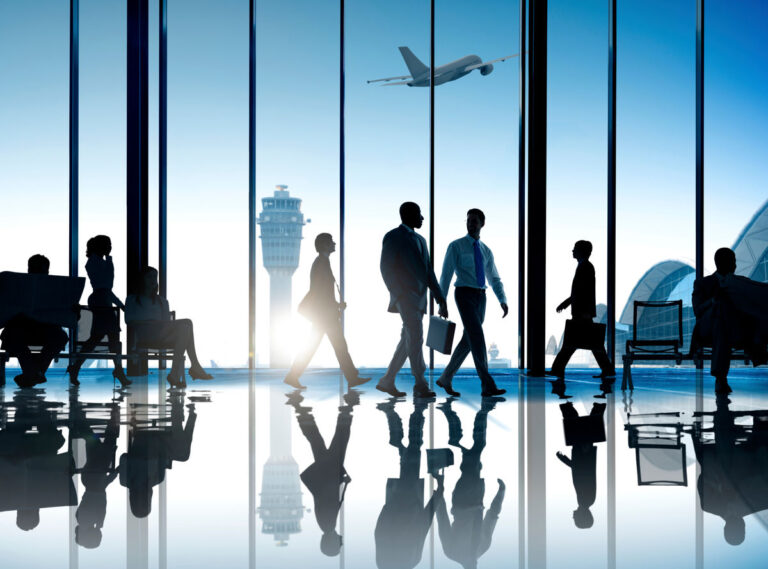
According to SAP Concur’s sixth annual Global Business Travel Survey, business travelers around the world are increasingly concerned about equal opportunity, travel disruptions and a less flexible business travel environment due to cost-cutting measures.
The survey looked at responses from 3,750 business travellers across 24 markets around the world to uncover the main concerns and thoughts of business travellers this year, which is predicted to be a year of success and increased popularity for business travel around the world.
“The current economic environment is creating tensions among business travelers, travel managers and company executives,” said Charlie Sultan, president, Concur Travel, SAP Concur. “It’s a delicate balance between flexibility and cost, not to mention pressures from new distribution channels and ongoing geopolitical issues. This year’s report demonstrates the need for a mutual understanding of these realities and compromises in corporate travel programs.”
Equal opportunities are hard to find
While 76 percent of business travelers worldwide enjoy traveling for work and 67 percent agree it is an important factor in career advancement, 66 percent feel they do not have equal travel opportunities compared to their peers, up 4 percentage points from last year’s survey.
Business travelers who feel most left out are those with lower job titles (19%), those who may be judged because of their age (18%), and those who are parents or caregivers (14%).
Women are at higher risk of being overlooked because of their age (20% vs. 17% of men), parenthood (17% vs. 13% of men) and gender (14% vs. 9% of men).
Additionally, members of the LGBTQ+ community feel they are being left out of these opportunities because of their physical appearance (20% vs. 12%), disability (14% vs. 8%), and sexual orientation (20% vs. 7%).
Travel disruptions discourage travel

Travelers may have a variety of concerns. (Photo: Adobe Stock / NaMong Productions)
In the past year alone, the majority of business travelers have been significantly affected by travel disruptions (88%), facing challenges including extended trips due to delays or cancellations (38%) and having to reschedule or cancel important meetings (38%).
These affect young adult business travelers more than older travelers (94% of Gen Z, 90% of Millennials, and 68% of Baby Boomers). Younger generations are more likely to combine business and leisure travel and extend the duration of their trips, which could lead to increased travel disruptions.
So, with the challenge of equal opportunity for business travel, will travel disruptions cause travelers to turn down potential business trips? The answer appears to be yes: 44% of travelers would turn down a business trip for safety reasons, and 29% would be prepared to cancel due to potential delays or cancellations. An additional 33% would turn down a business trip due to safety concerns about necessary transportation.
Business travelers have to consider weather, strikes and other travel disruptions, with 80% taking steps to address these issues and 34% booking extra time for their arrival.
“Preparing for potential disruptions can reduce stress and create a smoother travel experience. Savvy travelers are naturally safer because they know how to mitigate risks and find alternatives when disruptions occur,” said Suzanne Sangiovese, director of travel and technology at Riskline, a world-class travel risk intelligence company. “Companies that invest in travel management and travel risk intelligence solutions can effectively help travelers stay up to date on travel advisories and real-time destination alerts. It’s critical to provide travelers with the tools they need to make fast, informed decisions and adjust their plans efficiently and safely.”
Cost cutting reduces flexibility
Business travelers acknowledge that their company’s focus this year will be on meeting employee flexibility needs (40%), reducing travel costs (31%) and increasing sustainable travel options (29%).
However, 91 percent of business travelers worldwide have found their companies making cuts such as blended travel, and 27 percent of companies are allowing remote work while on business trips instead of allowing vacation days.
Travelers aren’t sold on this cost-cutting measure: one in five business travelers (22%) would turn down a business trip opportunity if it did not include the option to extend the trip for personal travel.
Companies are also more willing to cut back on employee amenities, such as opting for longer travel days in exchange for overnight stays (28%), saving money by taking connecting flights instead of direct flights (28%), opting out of business or premium class seats in favor of economy class (27%) and encouraging public transport over personal transport (27%).
Subscribe to the daily TravelPulse newsletter for the latest travel news, updates and deals.


